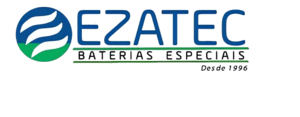No Blog Eletrônica de Potência você encontrará informações sobre teses,artigos,seminarios,congressos,tecnologias,cursos,sobre eletrônica potência. “TEMOS O DESTINO QUE MERECEMOS. O NOSSO DESTINO ESTA DE ACORDO COM OS NOSSOS MERITOS” ALBERT EINSTEIN. Imagination is more important than knowledge, for knowledge is limited while imagination embraces the entire world. EL FUTURO SE CONSTRUYE HOY,EL SUCESSO NO ES FRUTO DE LA CASUALIDAD,SE HUMILDE ,APRENDE SIEMPRE CADA DIA.
AUTOR DO BLOG ENG.ARMANDO CAVERO MIRANDA SÃO PAULO BRASIL

.gif)
“GRAÇAS A DEUS PELA VIDA,PELA MINHA FAMÍLIA,PELO TRABALHO.PELO PÃO DE CADA DIA,POR NOS PROTEGER DO MAL”
“SE SEUS PROJETOS FOREM PARA UM ANO,SEMEIE O GRÂO.SE FOREM PARA DEZ ANOS,PLANTE UMA ÁRVORE.SE FOREM PARA CEM ANOS,EDUQUE O POVO”


https://picasion.com/


domingo, 24 de novembro de 2019
A Study on Design of High Efficiency LEV Battery Charger for Low Voltage Battery Pack and Adaptive Charge Algorithm -Author Dongrak Kim Department of Electrical and Computer Engineering The Graduate School Sungkyunkwan University
A Study on Design of High Efficiency LEV Battery Charger for Low Voltage Battery Pack and Adaptive Charge Algorithm
Author: Dongrak Kim
Department of Electrical and Computer Engineering The Graduate School Sungkyunkwan University
Abstract
In recent years, lithium-ion batteries have been widely used in automobiles, golf carts, electric bicycles, energy storage devices (ESS), etc., and are rapidly replacing lead-acid batteries. Lithium-ion batteries are attracting attention owing to their high input/output power, long cycle life, and high energy density compared with lead-acid batteries. Lithium-ion batteries used in electric car battery packs require high energy densities of over 200 Wh / kg, charging speeds of over 1C, and lifespans of more than 1000 cycles. To satisfy these conditions, the costs of battery material and manufacturing are increased. Attempts have been made to develop a battery pack using the 18650 type cylindrical lithium ion battery (LIB), which is cost competitive but lacks the above-mentioned input/output power and lifetime characteristics in the light electric vehicle (LEV) system market. Moreover, the charging time and lifetime characteristics of the 18650 battery type currently used are not sufficient to meet the LEV customers' demand of one-hour charge time and a lifetime of more than 1000 cycles. Therefore, this paper proposes a rapid charging solution for the 18650 type LIB pack used in an electric forklift. The proposed rapid charge solution offers three benefits: shortened charge time, extended battery cycle life and improved charging efficiency. To achieve these benefits, a new - 2 - DC / DC converter topology and fast charge algorithm have been proposed. First, a PWM DC / DC converter using primary resonance tank (PRT) was proposed to increase the efficiency of the rapid charger. The converter's structure is similar to that of the conventional resonant converter but uses PWM control to eliminate problems caused by frequency variations. The top switch can operate with zero voltage switching (ZVS) and other switching elements including the bottom switch and output rectifier can be operated with ZVS and zero current switching (ZCS) by using a proper design of the resonant tank. The converter uses the PRT to prevent soft switching operations from being disturbed by resonance. Several design procedures are proposed as the design of PWM PRT converters is related to various parameters such as the resonant tank, transformer turns ratio, magnetizing inductance, and duty ratio. Secondly, we analyzed the causes of various deteriorations caused by the charging of the lithium battery; this was required for the rapid charging algorithm development. Among these, the lithium plating conditions having the highest deterioration rate during fast charging were studied. The proposed rapid charge algorithm was developed using an electrochemical model, which predicts the maximum charge current limit according to the cell voltage, current, and temperature and a differential voltage analysis (DVA), which is a tool to detect battery characteristics. The proposed adaptive fast charge algorithm detects the battery degradation state through charging/discharging patterns, and is optimized and controlled in real time reflecting the characteristics of the battery module and pack degradation as the charging/discharging cycles increase. The proposed charger and the charging algorithm are verified with a 5 kWh class battery pack consisting of 18650 type cylindrical cells and the results are presented.
Index Terms—Pulse-Width Modulation, Zero Voltage Switching, Fast Charging, Adaptive Charging Algorithm, Differential Voltage Analysis
FULL TEXT LINK
https://www.mediafire.com/file/l6g7e1vbphz6jgk/A_Study_on_Design_of_High_Efficiency_LEV_Battery_Charger_for_Low_Voltage_Battery_Pack.pdf/file
Assinar:
Postar comentários (Atom)


















Nenhum comentário:
Postar um comentário